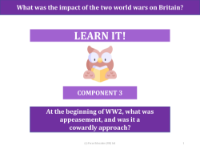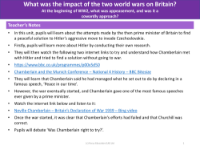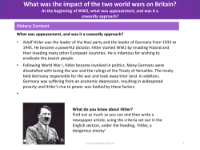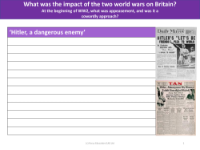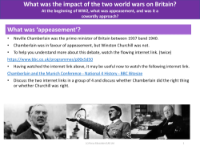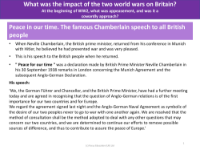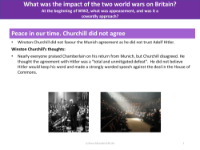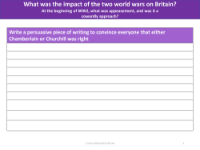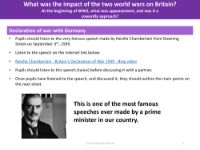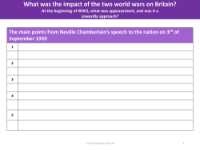Was it right for Chamberlain to try appeasement? - World War 1 and 2 - Year 6
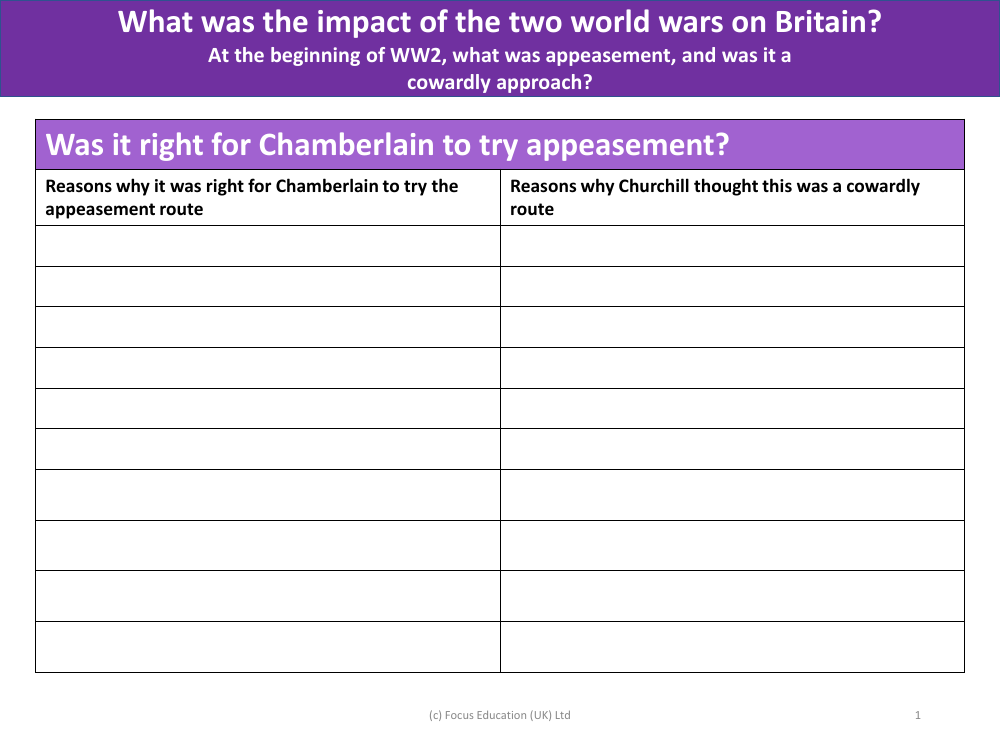
History Resource Description
The question of whether it was right for British Prime Minister Neville Chamberlain to pursue a policy of appeasement before the outbreak of World War II is a topic of historical debate. There are various reasons why some may argue that Chamberlain's decision to try appeasement was justified. At the time, the policy was seen as a means to maintain peace and stability in Europe, as the horrors of World War I were still fresh in the collective memory of the British people. The aim was to avoid another devastating conflict by making concessions to aggressive powers like Nazi Germany, in the hope that their appetite for expansion would be satisfied and war could be averted.
Conversely, Winston Churchill, who later succeeded Chamberlain as Prime Minister, was a vocal critic of appeasement, regarding it as a cowardly and ultimately futile approach. Churchill believed that it only emboldened dictators like Adolf Hitler, allowing them to gain strength and confidence. The impact of the two world wars on Britain was profound, with vast human, economic, and social costs. The initial policy of appeasement at the beginning of World War II is often scrutinised for its role in delaying British military preparations and potentially exacerbating the scale of the conflict. This debate about appeasement remains a significant aspect of understanding the complex prelude to World War II and Britain's role in it.
